5 Symptoms of a Bad Body Control Module (and Replacement Cost)
Today’s vehicles rely on complex networks of terminals, wires, and sensors feeding electronic modules that control vital systems. One such module is the body control module (BCM), which is the brains for various comfort and safety features.
Though rare, a vehicle’s body control module can exhibit severe operational issues, up to and including complete failure. Here are the most common symptoms of a bad BCM and its replacement cost.
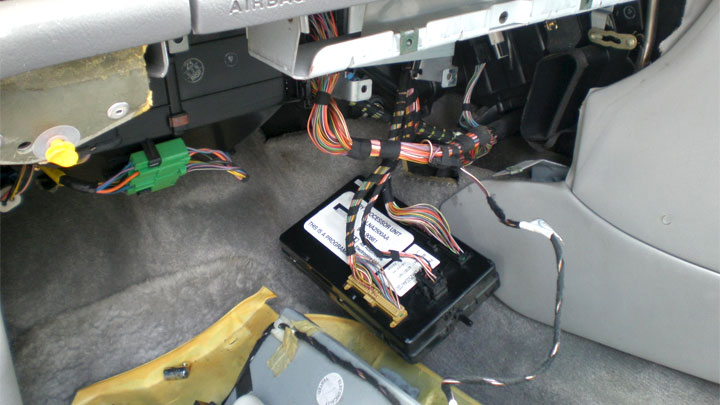
Read Also: 6 Symptoms of a Faulty PCM
What is a Body Control Module?
A body control module is an electronic driver tasked with overseeing and operating a number of a vehicle’s body related functions.
The exact functions that a vehicle’s body control module is tasked with overseeing, varies from one particular model of vehicle to the next. However, in most cases, a vehicle’s BCM facilitates wiper, lighting, heating, air-conditioning, and anti-theft system functions.
The body control module is also tasked with communicating with a vehicle’s other various control modules. This communication makes it possible to streamline further integration of a vehicle’s vital systems, for more efficient, trouble-free operation.
Where is a Body Control Module Located?
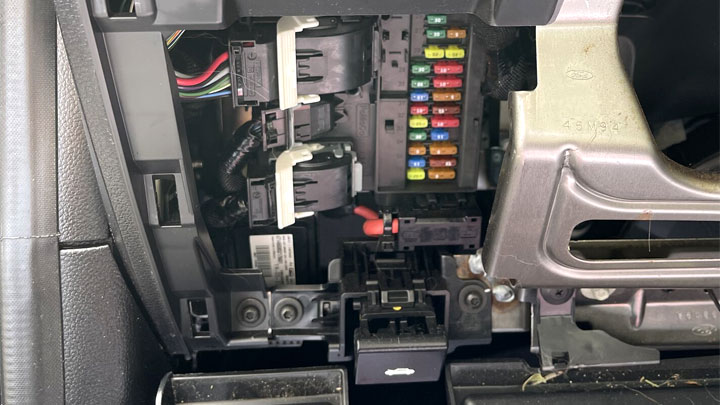
In the vast majority of vehicles, the body control module can be found beneath the dashboard. This tends to be a fairly standardized location, with most modules of this type being located within close proximity to this area.
However, the exact side on which the BCM is located (driver/passenger), varies from one model of vehicle to the next.
In certain instances, accessing the BCM can require partial disassembly of the dashboard and surrounding trim itself. Luckily, doing so can often be done with minimal hardship, as many dash-related components are assembled with little more than push-style clips.
See Also: 7 Symptoms of a Bad Transmission Control Module
Symptoms of a Faulty Body Control Module
There are a number of signs associated with body control module failure. However, some of these symptoms tend to be far more prevalent than others, though it is important to familiarize yourself with each in the event that you are faced with a fault of this type in the future.
The following are several of the most common symptoms associated with body control module failure.
#1 – Repeated Battery Drain
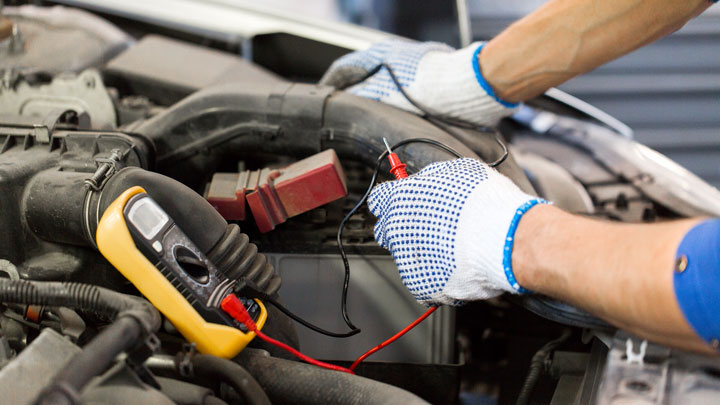
One of the most common symptoms associated with body control module failure is repeated, excessive battery drainage, also known as a parasitic draw.
While a certain amount of parasitic draw is permissible, excessive draw allowed by a BCM fault can drain a battery in hours. This draw occurs when a BCM continues to supply power to a particular accessory at incorrect times.
#2 – Erratic Electrical Function

A faulty body control module can also cause intermittent operation of various electrical functions, such as a vehicle’s horn, lights, power windows and mirrors, and wipers.
Wildly sweeping instrument cluster dials are also a tell-tale sign of body control module failure, as is irregular door lock and radio operation. The chance of such issues being BCM-related increases when more than one of these symptoms are present at any given time.
#3 – Security System Problems

In almost every instance, a vehicle’s security system is operated by the body control module. Therefore, it is easy to assume that consistent, yet puzzling issues associated with a vehicle’s security system, are the byproduct of a failing or faulty body control module.
This can also include problems with a vehicle’s keyless-entry or passive-entry functions.
Related: Car Alarm Keeps Going Off? (7 Reasons Why)
#4 – Dash Warning Lights
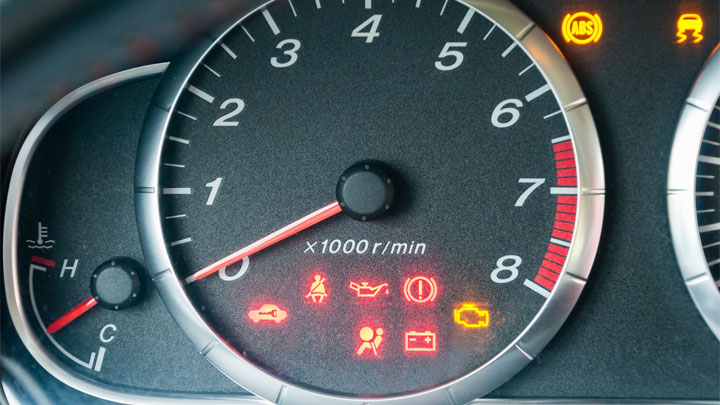
A faulty body control module can wreak havoc upon a vehicle’s instrument cluster. An otherwise unremarkable dash display can suddenly be illuminated to the point of resembling a Christmas tree.
This occurs when a BCM is unable to communicate with one more of a vehicle’s additional control modules, such as the transmission control module, powertrain control module, or airbag control module.
#5 – Failure To Start

A non-functioning or faulty body control module can also prevent a vehicle from starting at all, in certain cases.
Though somewhat rare, a bad BCM can fail to identify the key’s transponder chip, or can simply fail to deliver a “start” signal from a vehicle’s ignition switch, thereby preventing starter engagement.
A lack of communication by the BCM with other corresponding control modules can also lead to starting difficulties.
Can You Drive With a Bad BCM?
Though it is theoretically possible to drive a vehicle with a faulty body control module in most cases, doing so is ill-advised. This stems from the unpredictable nature of a computer module that is in the process of failing.
One simply cannot predict which of a faulty computer’s functions will operate as intended, on any given basis. The problem with this is that it is impossible to determine whether or not a safety sensitive issue will arise as the result of BCM failure.
Even if no such issue has occurred in the past, there is no guarantee that a faulty BCM will operate a vehicle’s lights when expected to do so. This poses a reasonable risk to a vehicle’s occupants.
Body Control Module Replacement Cost
Best places to order parts? See: 19 Best Online Auto Parts Stores
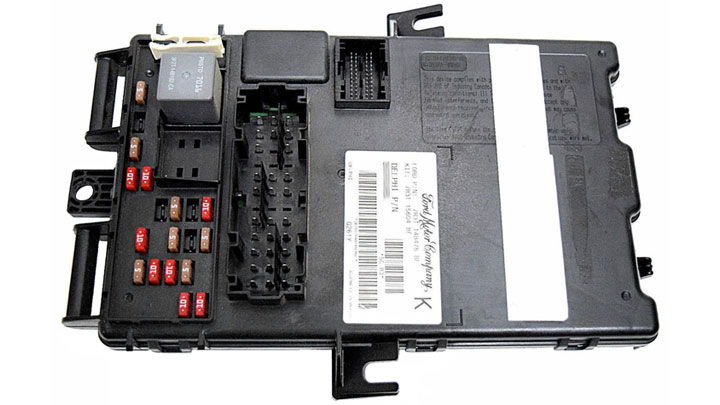
The exact price of body control module replacement differs from one make and model of vehicle to the next. This stems from the fact that the cost associated with particular body control modules vary, as do labor times associated with their replacement.
However, the following is an account of the average expenditure associated with body control module replacement.
The average cost of body control module replacement ranges from $300-$600. The biggest variable in this price is the actual cost of the failed module itself.
At the current time, shipping costs associated with locating and procuring such modules can also affect the bottom line of these repairs, as module availability has become somewhat of an issue.
See Also: Engine Control Module Replacement Cost
What Causes a BCM to Fail?

Heat and Mechanical Wear
Your vehicle’s body control module is susceptible to heat and high temperatures. As your car’s engine runs, it generates heat, affecting the electronic components within the BCM. Over time, this can lead to mechanical wear and ultimately failure of the module.
Water and Liquid Damage
In some situations, your BCM can be exposed to water and other liquids. Despite being reasonably protected from water damage, serious leaks or exposure to moisture can lead to corrosion of connections or short circuits, which may cause failure.
Shock and Collisions
A car crash or a sudden impact can cause severe shock to the BCM. Though it’s usually housed in a protected location, high shock levels from collisions can damage the module’s circuits, wiring, or electronic components, resulting in failure.
Short Circuits and Faulty Wires
The module relies on a network of wires and electrical circuits to function correctly. However, faulty wiring or short circuits can cause damage to the BCM. Make sure to address any issues with your vehicle’s wiring (easier said than done) to avoid putting unnecessary stress on the BCM.
Overused and Worn-Out Relays
Your body control module uses relays to control various functions of your car, such as the headlights or wipers. Over time, these relays can become overused and worn out, causing the BCM to work harder and potentially leading to its failure.
It’s a good idea to every once in a while check and replace worn-out relays related body control module features.
How a Faulty BCM Affects Other Modules
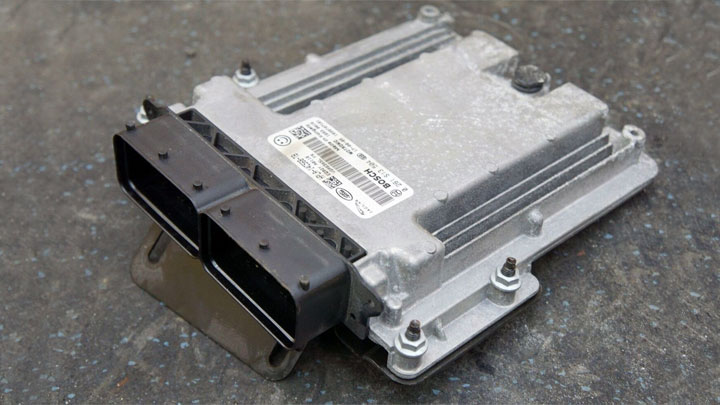
Powertrain Control Module
When you have a bad body control module, it can disrupt communication with the powertrain control module (PCM), which is considered the main computer of a vehicle. This can lead to several issues, such as reduced engine performance, stalling, and even a no-start condition.
A faulty BCM can also cause warning lights to appear on your dashboard, affecting the efficiency of the systems that the PCM handles.
Airbag Control Module
A malfunctioning BCM might also impact the airbag control module, potentially compromising your safety.
If the BCM isn’t communicating properly with the airbag module, it could result in airbag warning lights turning on or even prevent the system from deploying airbags during a collision. ALWAYS take any airbag-related issues seriously and get them checked out.
Transmission Control Module
The transmission control module (TCM) manages your vehicle’s transmission, providing smooth gear shifts and optimal performance. When the BCM is experiencing problems, it can even affect the TCM’s ability to function as it should. This may manifest as transmission-related issues like erratic shifting, reduced fuel efficiency, and compromised vehicle performance.
A faulty BCM can create sort of a chain reaction, causing multiple module and system failures in your vehicle. If you or your mechanic suspects a bad BCM, you’ll want to take it seriously before more significant problems arise.
FAQs
Does a new Body Control Module Need Programming?
Yes, when you get a new BCM, it typically requires programming. Once installed, it needs to be programmed to correspond with the specific settings of your car. This way, the new BCM can properly manage all the various electronic systems and functions in your vehicle.
You will almost certainly need professional assistance from a mechanic or an authorized dealer, since specialized tools or software are typically required.
Can a BCM Be Reset?
In certain instances, a vehicle’s BCM can be reset to restore full function. This, of course, hinges upon a module’s internal circuitry being in proper working order, as no reset will remedy compromised internal electrical circuits.
If a “glitch” of sorts has led to your vehicle’s BCM issues, a reset might be the exact repair that is needed. The procedure for completing a body control module reset generally differs from one make and model of vehicle to the next.
Ford, Dodge, and Chevy/GMC all have their own procedure for completing such procedures, though most involve cutting power to a vehicle’s BCM for a specified period of time.
In many cases, this is done by simply disconnecting a vehicle’s battery, while other vehicles require a specialized fuse to be removed.
In any event, you should always consult factory specific service literature for your specific vehicle before attempting to reset your car, truck, or SUV’s body control module. Failing to do so can lead to irreversible unit damage.
- P0480 Code (Symptoms, Causes, and How to Fix) - Apr 19, 2024
- Car Temperature Gauge Stopped Working? (Here’s Why) - Apr 15, 2024
- Ignition Coil vs Coil Pack (What’s the Difference?) - Apr 8, 2024

Waaooow…nice explanations but please how can i get a new BCM for my Renault Clio Car?
Have you checked ebay? They sell refurbished modules. I’ve found several reputable sellers with great return policies.
If you can’t find what you need online, check your local salvage yard.
Wow! I learned alot from you. Thank you so much😊😊
I found really good description on this website, my car Chevrolet Captiva 2.4- 2007 having a problem of battery drain after 4 hours of swished off the car. I already replaced new battery also. now I know the exact problem of my car that BCM is faulty. but the problem is from where I can find the BDM for old car.
Ebay is a great place to start for refurbished modules. Sometimes you can also find them in junkyards.
Good explanation
My 2008 scion xb when l press the brake to drive trasmision get lock ,radio stop working ,heater stop working,wiper stop working and power stering get hard to turn what could be
Sounds like an electrical short maybe. The car is still running, correct?